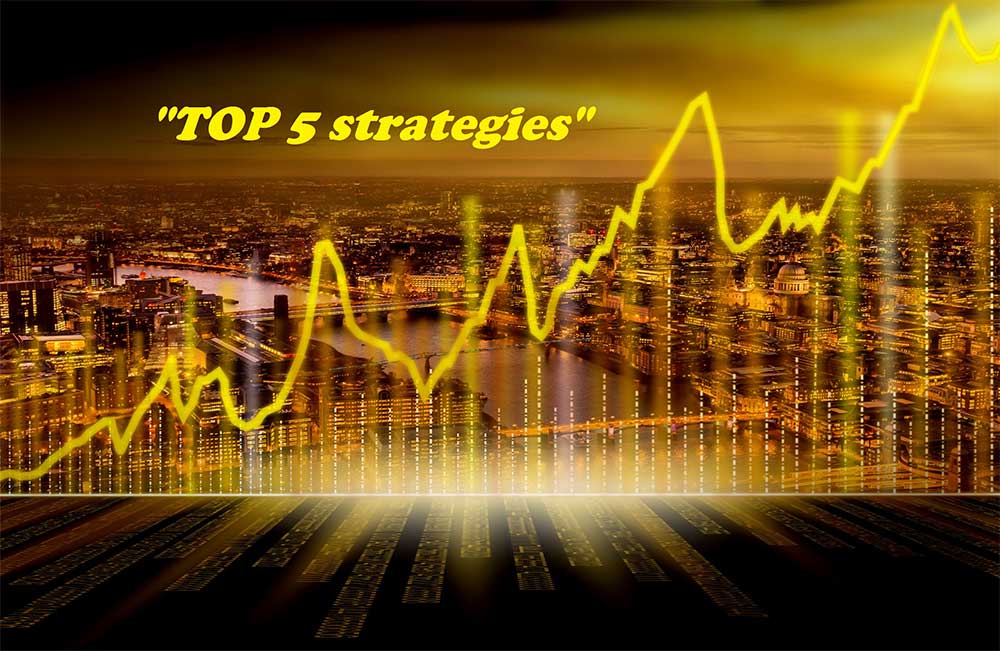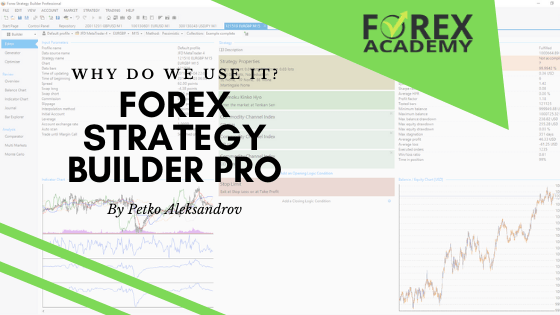If you are new to trading, you may want to learn more about other markets as soon as possible. One of the quickest methods to accomplish this is through social trading on a dedicated social trading platform using various social trading tools.
A popular method for investors to participate in the financial markets in recent years has been social trading. Part of this is due to the ability to leverage the collective expertise of a group of people eager to share their trading experiences and decisions. We will try to explain what social trading is about, how it evolved, the essential components, the benefits and drawbacks, and what investors should consider.
Table of Contents:
What is social trading? Definition and Meaning.
Social trading is a revolutionary approach that is changing the way investors interact with the market. This creative method involves traders working together to make investment decisions by combining their collective knowledge. The exchange of trading ideas, strategies, and tidbits of information among a group of investors is the fundamental component of social trading. Contrary to conventional techniques, which depend exclusively on individual examination, social trading relies on the force of aggregate knowledge to advance trading results.
Progress in technology and evolving business sector components have distinguished the development of social trading platforms. From simple forums to complex networks, these platforms act as centers for traders to connect, share data, and execute trades consistently. Social trading platforms include various features and functionalities custom-fitted to the requirements of traders. Easy-to-use interfaces, real-time information, and intuitive devices are among the key parts that enable traders to make informed choices and maximize their profits.
Want to enhance your social trading experience? Join our community forum to share ideas and strategies with fellow traders!
Advantages of Social Trading
Social trading offers a number of advantages for those who choose to be part of it. If we should list some of the main ones, that would include access to market insights, learning opportunities, community engagement, accessibility and convenience, and the potential for passive income. Now let’s look at each of those more in depth.
1. Access to Market Insights
Through social trading platforms, you can connect and interact with a community of experienced traders and receive access to valuable information and analysis. This real-time information sharing allows you to stay updated on market trends, news, and events that may impact your trades. It is also worth mentioning the concepts of crowd wisdom and collective intelligence. By following successful traders or participating in conversations with other traders within the network, you can take advantage of the collective knowledge and expertise of a diverse group. This cooperative methodology improves decision-making processes by thinking about alternate points of view and strategies.
Part of the same group advantages of social trading is also access to a diverse range of trading strategies. You have the chance to explore different approaches performed by successful traders all over the planet. This openness to various methods empowers people to broaden their own trading strategies instead of depending entirely on their limited experience or knowledge.
2. Learning Opportunities
When it comes to knowledge, one of the most valuable advantages of social trading lies in the multiple learning opportunities that are offered to the traders. Here we can mention a few aspects from which traders can benefit.
Educational Resources and Mentorship: Social trading platforms offer plenty of educational resources, from articles and tutorials to webinars and online courses. You can also benefit from different mentorship programs. Within those programs, you can receive guidance and insights from experienced investors. This helps you develop your skills and also provides precious guidance for all traders.
Observational Learning from Experienced Traders: Within the social trading network, you can observe how experienced traders perform trading activities. As a novice trader, you have a great opportunity to receive valuable insights into effective trading strategies and market dynamics. This observational learning approach allows traders to learn from real-life examples and apply what they have learned to their own trading practices.
Hands-On Experience without Risking Capital: You can use demo accounts to practice different strategies and develop your skills without risking real capital. Social trading platforms often offer this kind of simulated trading accounts or demo accounts. This so-called hands-on experience allows traders to try different trading techniques and gain deeper knowledge of market dynamics. They also build confidence in their trading abilities without incurring financial risk.
3. Community Engagement
Part of community engagement is the opportunity of networking with like-minded individuals. When you join a social trading network, you can connect with other traders who share similar interests and trading goals. This sense of community encourages collaboration, idea sharing, and mutual support. Traders feel they are part of supportive environment which allows them to thrive.
Like other social networks, there are feeds, forums, and chat rooms in the social trading platforms. You can participate in discussions, share trading strategies, and exchange market insights with other members of the community. This collaborative approach lets traders to benefit from the collective knowledge and expertise of the group.
Social trading platforms not only provide valuable trading resources, but here traders also can receive emotional support and motivation. You can deal better with the emotional highs and lows of trading when feeling the mutual support and solidarity within the community. During periods of market volatility or uncertainty this emotional support can be invaluable for traders.
4. Accessibility and Convenience
The user-friendly interfaces of the social trading platforms are designed to serve traders of all levels. Navigation within the platform is easy no matter if you are experienced trader or beginner. Everyone can access relevant information and execute trades without facing any difficulties. Customizable dashboards, real-time data feeds, and mobile compatibility are some of the intuitive features which improve the user experience.
Traders have different needs and preferences and social trading platforms offer flexible trading options that respond to them. Whether you are interested in stocks, forex, commodities, or cryptocurrencies, you can find a wide range of trading instruments. Also various asset classes are available to choose from. Traders can tailor their trading strategies and risk management techniques to their unique trading styles and objectives.
Reduced entry levels for new traders is another aspect of the advantages of social trading. If you are using traditional trading methods, you need significant capital investment and also quite an expertise. On the contrary, social trading platforms offer accessible way for anyone to enter the financial markets usually at a low cost. You don’t need to have prior trading experience and with only a minimal capital required, you can already participate in the financial markets. This is how social trading democratizes access to investing, allowing more people to be part of it.
5. Potential for Passive Income
One of the most popular social trader tools is copy trading where you can automatically replicate the trades of other traders. There is potential to generate passive income without the need for active trading. And this is possible by following successful traders and copying their strategies. There is also another option for passive income generation, which is via automated trading systems. Users can execute trades based on pre-defined parameters and algorithms.
More advanced traders can generate income by sharing their expertise with others. If you build a reputation as a successful trader and attract followers, you can earn additional income through performance fees, subscription fees, or profit-sharing arrangements. There is a win-win situation, which creates a mutually beneficial environment for both sides – traders and followers.
For those who prefer diversity in investments, social trading is a great choice. Traders have access to a wide range of trading strategies and asset classes. When you are allocating funds across different trading strategies of the multiple traders you follow, you can spread the risk and increase your chances of reaching better risk-adjusted returns. This diversification is useful when you want to soften the impact of market inconsistency and bring down the dependency between different assets. Your investment portfolio will then have better overall stability and resilience.
Disadvantages of Social Trading
Together with the number of advantages that social trading offers to investors via different social trading tools, we cannot overlook the disadvantages of this phenomenon. As in every process, on the other side of the pros are the cons, which you should consider and examine if you want to be on top of things. To name a few downsides, we should include risk of blindly following others, an overwhelming amount of information, potential for fraud and manipulation, loss of privacy and data security, emotional and psychological factors, regulatory challenges and legal risks, among others. Now, let’s have a closer look at those, so you understand what you have to deal with.
1. Risk of Blindly Following Others
One of the major downsides of social trading is associated with the risk of blindly following others. Most of the time, this is dictated by a lack of due diligence and research. Those are critical aspects when you need to make informed investment decisions, and if you skip them, you may neglect your own analysis and find yourself in a situation where you rely too heavily on social trading tools and the decisions of others. This dependency can be dangerous as it removes personal accountability and critical thinking from the trading process.
Another drawback is the dependency on other traders’ decisions. Social trading platforms often highlight successful traders, but past performance does not guarantee future results. Blindly copying trades without understanding the underlying strategies or market conditions can lead to substantial losses. It is essential for traders to use social trader tools to complement their research rather than replace it.
Furthermore, there is always a risk of exposure to market fluctuations. When you rely on the trades of others, you cannot really reduce the natural risk that comes from the unpredictability of financial markets. During periods of high market turbulence, following the crowd can increase losses. Traders must understand that social trading does not eliminate risk and should always be prepared for market fluctuations.
2. Overwhelming Amount of Information
A significant disadvantage of social trading is the overwhelming amount of information available. This flooding often includes noise and misinformation. You need to separate valuable insights from incorrect data. And this can be challenging with the huge variety of social trading platforms. Traders are vulnerable to poor decision-making and potential financial losses caused by inaccurate information.
Another issue is the difficulty in identifying which sources are reliable. There are countless traders sharing their strategies and opinions. Determining the credible sources among them becomes tricky. Using social trader tools, you will have access to a wide range of data; however, only some of it will be trustworthy. Not all traders possess skills like critical evaluation and discernment, which are necessary to tackle this challenge.
Information overload is one of the reasons that leads to analysis paralysis. Making timely and, at the same time, accurate decisions becomes very hard when you are overwhelmed with data. You may feel hesitant and miss good opportunities, paralyzed by the massive amount of information. Even with advanced social trading tools, the abundance of conflicting advice can create confusion and indecision.
3. Potential for Fraud and Manipulation
Social trading presents a rich ground for fraudulent activities and manipulation. One widespread issue is the presence of fake profiles and pump-and-dump schemes. Scammers create deceptive profiles to artificially inflate the value of a stock, only to sell it off once others have invested. Misleading performance metrics are another concern. Some traders would inflate their success rates, making their strategies appear more profitable than they are. The vulnerability to scams and Ponzi schemes further compounds these risks.
4. Loss of Privacy and Data Security
Social trading involves sharing personal trading data with a large audience. This transparency can be double-edged. While it fosters learning and collaboration, it also exposes sensitive information. Traders’ strategies, financial activities, and performance metrics become visible, raising significant privacy concerns. Privacy issues extend further when interacting with social networks. Social trading platforms often integrate social networking features, increasing the risk of data misuse. Your personal details shared on these networks can be exploited. Cybersecurity risks and hacking threats add another layer of danger. Social trading tools and platforms can become targets for cyberattacks. Even sophisticated security measures might not fully protect against these threats.
5. Emotional and Psychological Factors
Social trading can trigger significant emotional and psychological challenges. Fear of missing out (FOMO) is one those challenges. Observing others’ apparent successes on social trading platforms can create a sense of urgency, which is leading traders to make impulsive decisions without proper analysis. Market fluctuations also contribute to stress and anxiety. The volatility of markets means that investments can quickly lose value, causing constant worry. Social trader tools that display real-time changes increase this stress and it makes it difficult to remain calm and rational. The emotional rollercoaster of trading success and failure is another drawback. While winning trades bring euphoria, losses can be devastating. This cycle can lead to burnout and poor mental health. Traders using social trading tools are often exposed to the highs and lows of their peers, intensifying these emotional swings.
6. Regulatory Challenges and Legal Risks
Social trading, while beneficial, carries significant regulatory issues and legal risks. One major concern is the lack of oversight and regulation in many social trading platforms. Additionally, compliance issues with financial authorities can arise. Traders must be careful about local and international compliance requirements to avoid legal repercussions. Furthermore, the legal implications of copying trades without proper authorization can be severe. Unauthorized copying of trades can lead to intellectual property disputes and other legal conflicts. So traders must familiarize themselves enough well with the legal part before engaging in social trading.
Popular Social Trading Platforms
Some of the most popular social trading platforms for forex trading include:
- eToro: Known for its user-friendly interface and extensive range of copy trading features. It allows users to mimic the trades of successful traders and provides a social feed for discussing trading strategies.
- ZuluTrade: Offers a robust platform where traders can follow and copy the trades of top performers. It supports multiple brokers and provides various performance metrics to help users choose the best traders to follow. Check out our REVIEW .
- NAGA: Combines social trading with a social network feel, allowing users to share their trading activities and insights. It offers a wide range of assets, including forex, stocks, and cryptocurrencies.
- Ayondo: Focuses on social trading for forex and CFDs. It allows users to follow top traders and automatically replicate their trades. It also offers risk management tools to protect investments.
- Darwinex: Unique in its approach, Darwinex converts traders’ strategies into investable assets called “DARWINs,” which can be followed and invested in. It provides detailed performance analytics and risk metrics. Check out our REVIEW.
- MetaTrader 4 (MT4) and MetaTrader 5 (MT5) with Signal Services: While not social trading platforms per se, MT4 and MT5 offer signal services where users can subscribe to trading signals from experienced traders and automate the copying of these trades.
- Pepperstone: Known for its competitive spreads and excellent customer service, Pepperstone offers social trading through partnerships with platforms like Myfxbook and MetaTrader’s signal services. It provides access to copy trading features where users can follow and replicate trades from top traders. Check out our REVIEW.
- Dukascopy: Offers a social trading platform called Dukascopy Community, where traders can share strategies and follow others. It includes advanced analytics and performance metrics to help users make informed decisions about who to follow. Check out our REVIEW.
Conclusion
To sum up, social trading offers a unique blend of benefits and challenges. On the positive side are the accessibility to experienced traders’ strategies, the educational value through observational learning, and the reduced entry barriers for beginners. However, it also comes with noticeable disadvantages, such as the potential for emotional stress, privacy concerns, and regulatory risks. The key to utilizing social trading tools effectively lies in maintaining a balanced approach. Investors should perform due diligence, remain aware of the emotional impacts, and understand the legal landscape surrounding social trading platforms.
Advancements in social trader tools and increased regulatory inspections, which are likely to improve its reliability and safety, however, are making the future of social trading look promising. As technology evolves, trading community can expect more sophisticated features and better security measures. Still, investors must stay informed and cautious, and adapt to new trends and regulations continuously. This balanced and informed approach will empower them to capitalize on the full potential of social trading while reducing its inevitable risks.
Instead of blindly following others, join our free 21-day algo program and get access to some of our best-selling online trading courses and free robots. The program will equip you with the skills to analyze markets and craft your own strategies using our advanced trading software and tools to create Expert Advisors. Start your journey to becoming a savvy, independent trader today!



